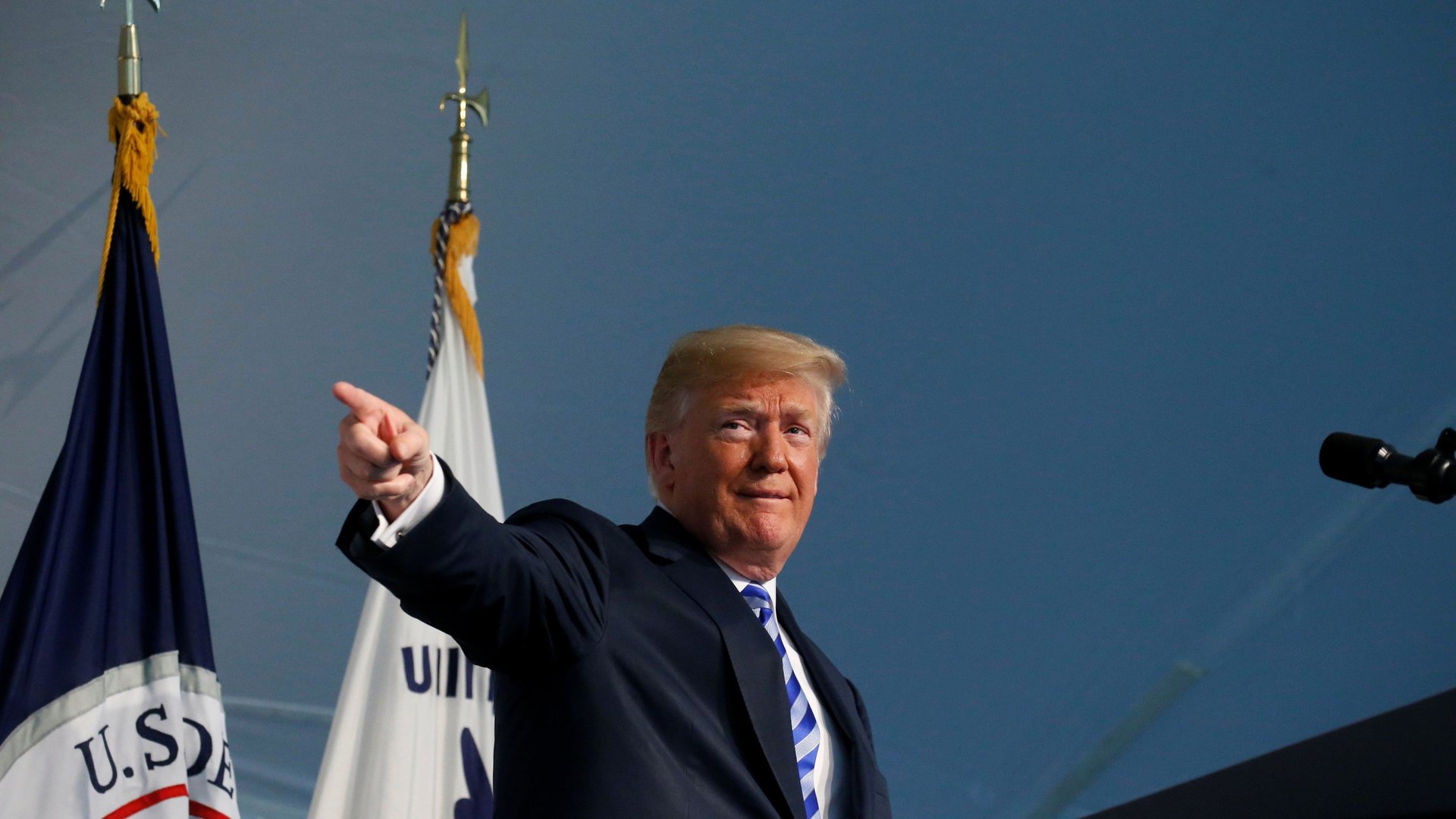Presidents aren’t supposed to say anything about the job report before it’s released. Of course, Donald Trump tweeted about it.
Donald Trump upended presidential precedent—again—when he tweeted today about a key, market-moving economic indicator just over an hour before it was released:


Donald Trump upended presidential precedent—again—when he tweeted today about a key, market-moving economic indicator just over an hour before it was released:
The president is traditionally briefed on the monthly jobs data the night before it is published, and past presidents have scrupulously avoided passing any information about it ahead of time. The US added 223,000 jobs in May, beating analyst forecasts for a 190,000 gain. The unemployment rate edged down even further in May, to 3.8%, the lowest level since 2000.
Trump didn’t reveal any of that, but he “stayed precariously within a hair’s length of seeming to tip off the strengths of the report, in that it came in better than expected,” said Mark Hamrick, senior economic analyst at Bankrate, a market research firm.
And he was in direct violation of a federal rule passed in 1985:
All employees of the Executive Branch who receive prerelease distribution of information and data estimates as authorized above are responsible for assuring that there is no release prior to the official release time. Except for members of the staff of the agency issuing the principal economic indicator who have been designated by the agency head to provide technical explanations of the data, employees of the Executive Branch shall not comment publicly on the data until at least one hour after the official release time.
As president, Trump has routinely flouted historical precedents and democratic norms. The tweet about the jobs report is hardly the most surprising thing he’s done—after all, the day before he launched a trade war against allies in the name of national security.
The monthly job numbers are hugely important, anticipated by investors because the new information about the world’s largest economy almost always moves markets. If you knew these numbers in advance, you could trade on that information, making money from people who didn’t have similar access. That usually means people invested in retirement accounts and mutual funds that aren’t as responsive to day-to-day news: so, all of us. Widely available insider info would erode the integrity of the markets, benefiting the few at the expense of the many.
So, did anyone trade off the tweet? “One would have to think so,” said Hamrick. While it is impossible know for sure how much of that was related to Trump’s comment, “people trade on much less obvious metrics or factors,” he said. “Tradition suggests he gets a look at the numbers, and he was attempting to draw attention to it.”
It’s hard to divine exactly what moves markets, but immediately after 7:21am ET, when Trump tweeted about the report, an index tracking the dollar against other major currencies jumped. Stocks and bonds behaved similarly after Trump’s tweet.
What’s more, markets bumped around within a range after the official numbers were released, noted Marc Oswald, a global strategist at ADM. “With Trump’s tweet that he was ‘looking forward’ to the labor data having already prompted markets to discount a better than expected outturn,” he said, it’s “back to more politics and trade battles!”
Trump’s rule-breaking move might influence markets next month, too. Now, Trump’s tweets on jobs day—whether they are about the incoming data or not—will act as a signal for whatever number is to come.